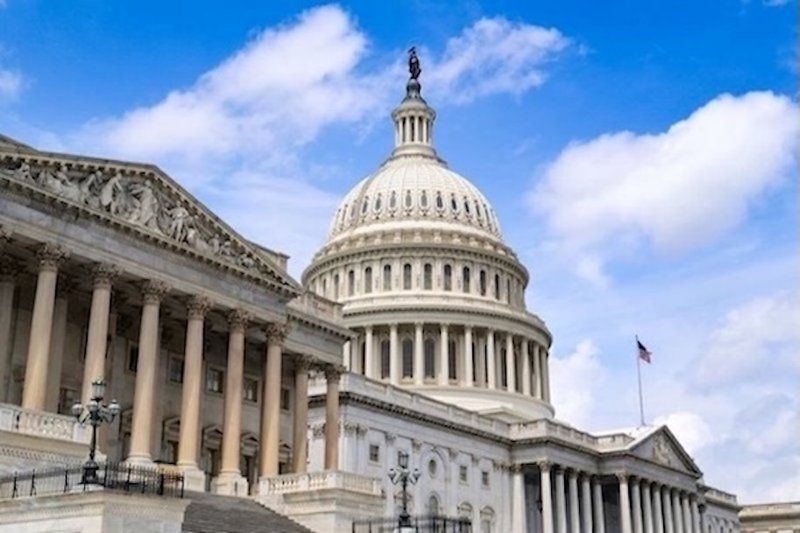Federal Early Education Update: July 2025
The latest in federal early education news
Blog Post

Shutterstock
July 28, 2025
Only a month has passed since the last federal update, but there’s been no shortage of executive and legislative action at the federal level over that period of time. Below is a roundup of recent events that have a direct impact on early education.
Budget Reconciliation
On July 4th, President Trump signed into law the massive budget reconciliation bill known as the One Big Beautiful Bill Act after it cleared both the Senate and House of Representatives on party-line votes. The law includes hundreds of provisions that will reshape multiple areas of policy ranging from tax cuts to Medicaid and immigration enforcement. The law also includes enhancements to several federal tax credits aimed at improving child care affordability, including the Dependent Care Assistance Program (DCAP), the Child and Dependent Care Tax Credit (CDCTC), and the Employer-Provided Child Care Credit.
These improvements cannot be viewed in isolation, however. The significant cuts to Medicaid and food assistance programs included in the law will harm vulnerable children and families while passing costs on to individual states. New analysis from the nonpartisan Congressional Budget Office (CBO) is helpful in understanding the long-term potential impact of the law; the CBO predicts that the law will increase the federal deficit by $3.4 trillion and cause 10 million people to lose health insurance.The law also includes significant changes to higher education policy, including a new accountability policy for colleges that connects schools’ access to federal student loans to graduate earnings. This has the potential to negatively impact college programs designed to prepare future early educators due to the typically low wages graduates receive once they enter the workforce.
HHS Rule on Head Start and Non-Citizens
On July 10, in a major policy shift, the U.S. Department of Health and Human Services (HHS) announced a policy under which it will rescind a 1998 interpretation of a welfare reform law and newly consider Head Start and other federal programs as “welfare benefits,” making program participants subject to new citizenship requirements. The new policy is effective immediately and has a 30-day comment period. Early education advocates quickly condemned the change as violating the spirit and letter of the law authorizing Head Start. The National Head Start Association (NHSA) issued a statement noting that attempts to require documentation of immigration status when enrolling in the program “threaten[s] to create fear and confusion.” Additionally, the ACLU announced that they planned to amend their existing lawsuit against the administration over its attacks on Head Start to include opposition to the new rule.
The HHS notice acknowledges that non-profits cannot be required to verify the immigration status of Head Start participants, potentially meaning that a majority of grantees will not be required to ask for proof of citizenship. Until HHS issues guidance around the new rule, however, there will be more questions than answers about implementation, including how providers will check immigration status, the impact on current enrollees, and how the rule applies to public schools that provide Head Start.
Budget Rescissions
On July 24, President Trump signed a bill that claws back about $9 billion in congressionally approved funds for foreign aid and public broadcasting. Recently, the administration has indicated that future rescission packages are on the way, likely targeting the Department of Education. Russ Vought, the head of the Office of Management and Budget (OMB), had this to say about the funds that will be targeted: “You have a preschool program that doesn’t do any preschool funding, all it does is indoctrination of four-year-olds of [critical race theory].” This echoes the inaccurate line of attack used by the administration to justify its attempt to defund the Preschool Development Grant Birth through Five (PDG B-5) program in its recent budget request. The truth is that, far from being a vehicle for indoctrinating children, the historically bipartisan program has been instrumental in enabling states to improve their ECE systems through strategies such as strengthening the transition between early childhood and the early elementary grades, increasing program operating and cost efficiencies, and maximizing parental choice.
Appropriations
Amid all the recent news, it’s easy to forget that there’s the looming possibility of a government shutdown when funding ends on September 30th. The budget rescissions pushed by the administration have injected a great deal of tension and uncertainty into the annual appropriations process, making a shutdown or a full-year Continuing Resolution (CR) a distinct possibility. As a reminder, the administration's budget request calls for a 30 percent cut to HHS and a 15 percent cut to the Department of Education, but exact funding amounts are ultimately up to Congress. A cut of that size could be especially harmful for the Department of Education given the recent Supreme Court decision allowing for mass layoffs of over 1,300 employees.
Withheld Education Funds
Finally, the administration recently announced that it will release $7 billion in withheld grant money after receiving backlash from Republican senators. The funds, which should have been received by states by July 1, had been withheld due to an administration review to ensure they are not used “to subsidize a radical leftwing agenda.” The reality is that these funds are critical for services such as migrant education, services for English learners, and teacher professional development. Analysis by New America shows that the 100 school districts that would see the worst losses per pupil from the withheld funding are heavily concentrated in Republican-represented congressional districts.
On a related note, on July 23 the Government Accountability Office (GAO) issued a decision saying that the administration illegally withheld funding from Head Start. The GAO found that the administration “significantly reduced the rate of disbursement of funds for Head Start grant programs” between January 20 and the middle of April, causing financial hardship for many providers. In response, Ranking Member Rosa DeLauro called for the removal of Russ Vought from his position as the head of OMB.